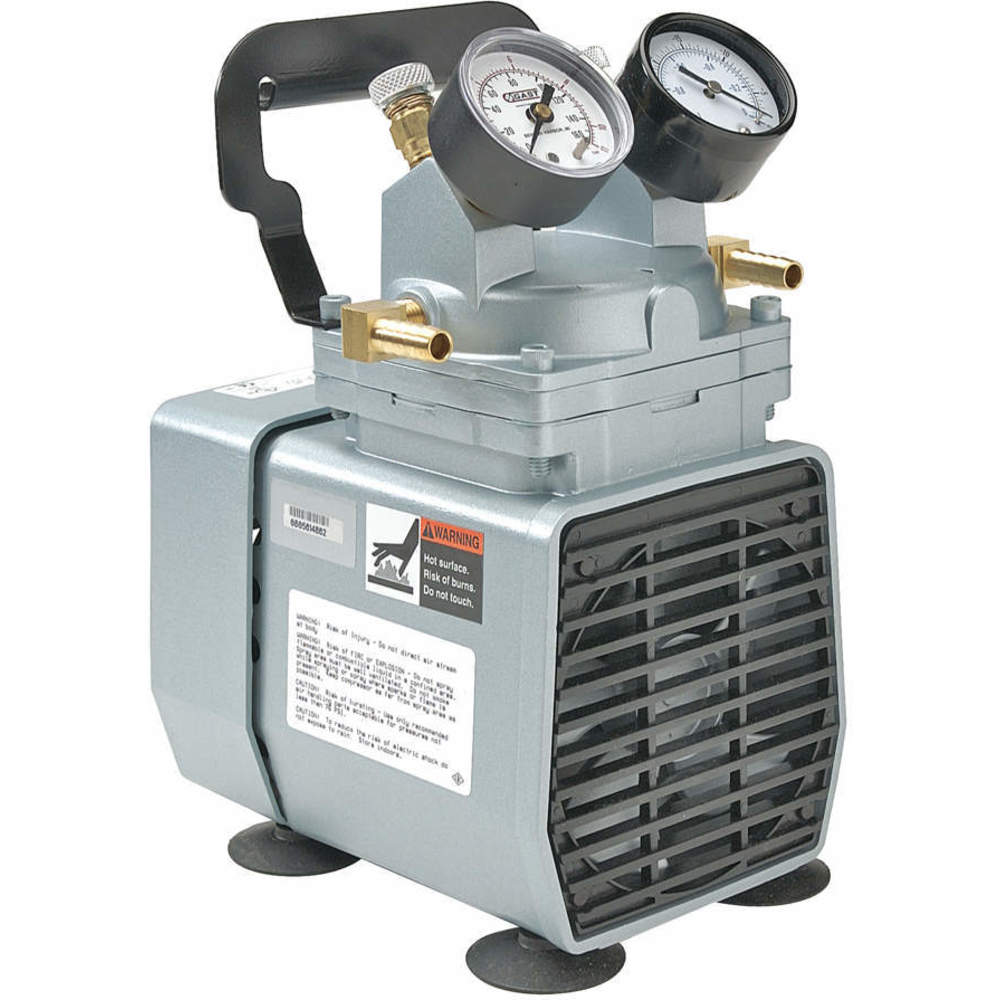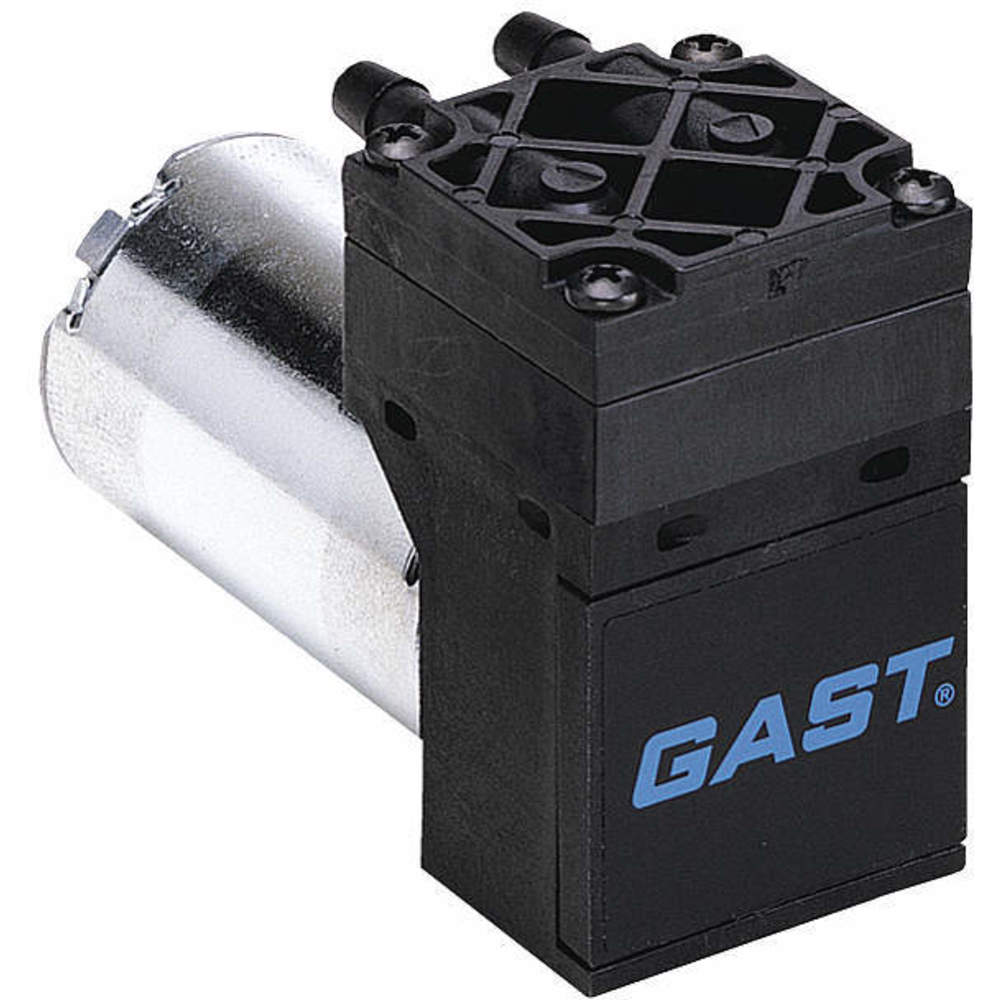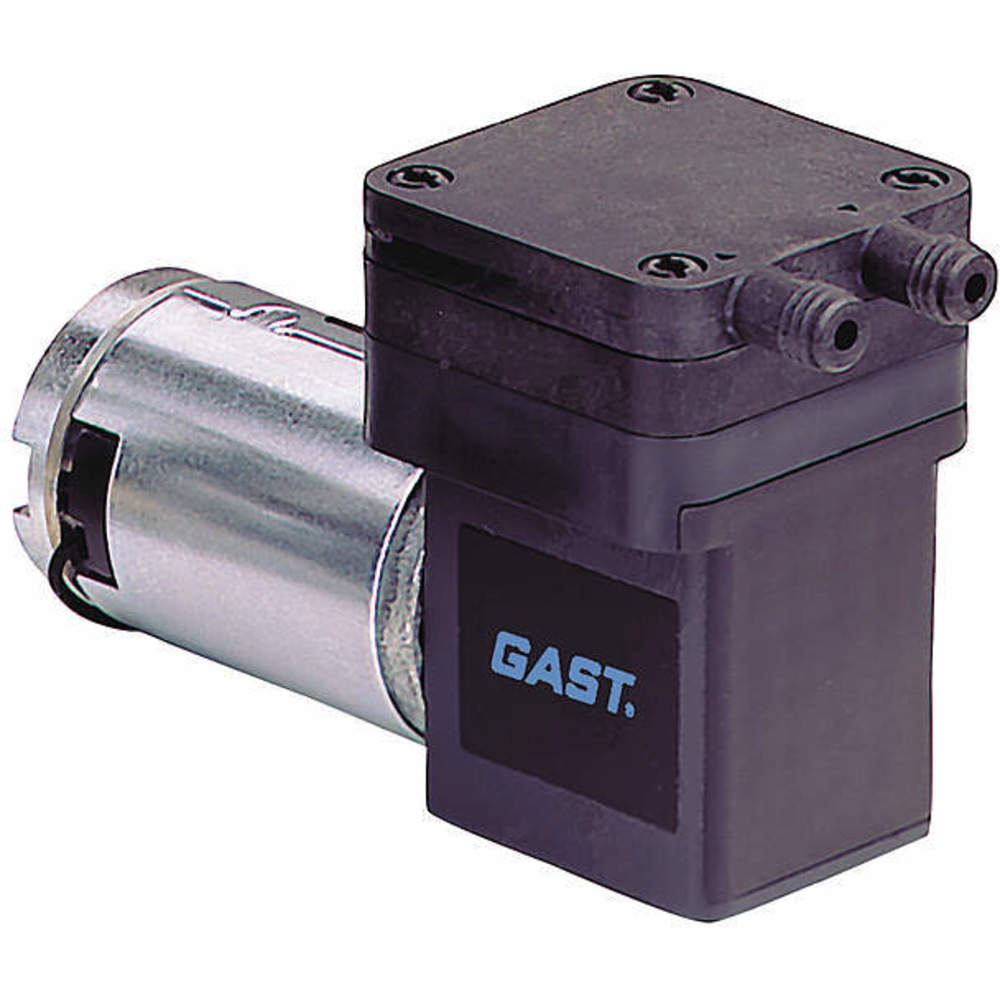Gast DOA-P707-AA compressor / vacuum pump is used in industrial and laboratory applications to create or maintain a controlled pressure environment by either compressing gases or creating a vacuum.
Working Mechanism:
- Gast DOA-V751-FB diaphragm combination compressor and vacuum pump operates by using a flexible diaphragm.
- When functioning as a compressor, the diaphragm compresses air in one chamber during a forward stroke, increasing pressure.
- In vacuum mode, the diaphragm moves in the opposite direction, creating a vacuum in the other chamber to reduce pressure. This continuous back-and-forth diaphragm movement allows the pump to run continuously, either supplying compressed air or creating a vacuum.
Features:
- Gast DOA-P707-AA compressor / vacuum pump features a diaphragm compressor, ensuring oil-free operation.
- This compressor / vacuum pump comes with a 1/3 hp output power for efficient performance.
- It can be operated at voltages up to 115VAC and offers a maximum continuous pressure of 60 psi for reliable pressure control.
- This compressor / vacuum pump comes with a maximum vacuum capability of 25.5 in Hg, ideal for suction applications.
- It is designed with an NPT inlet and outlet connection type for easy installation.
Compatible Accessories:
- Gast K294A Repair Kit: It is designed for Gast compressor / vacuum pump, allowing for efficient maintenance and repairs of the pump to ensure its continued functionality and performance.
Frequently Asked Questions:
Q. What maintenance is required to keep the pump running smoothly?
A. Regular maintenance may involve checking the diaphragm condition and replacing it if necessary, along with routine inspections.
Q. What factors must be considered while purchasing air compressor pumps?
A. When buying air compressor pumps, consider air volume, pressure and power source (electric or gas). Check the duty cycle for application alignment, assess build quality and durability and account for noise levels, maintenance and accessory compatibility.
Q. What is cavitation and how does it affect the performance of a vacuum pump?
A.
- Cavitation occurs when a deep level of vacuum is achieved in a vacuum pump. The seal fluid (water) rapidly evaporates and creates small pockets of gas near the tips of the impeller blades, where they compress and implode.
- These pockets of gases can cause damage to the pump and are determined by a ringing sound.
 Change Country
Change Country






